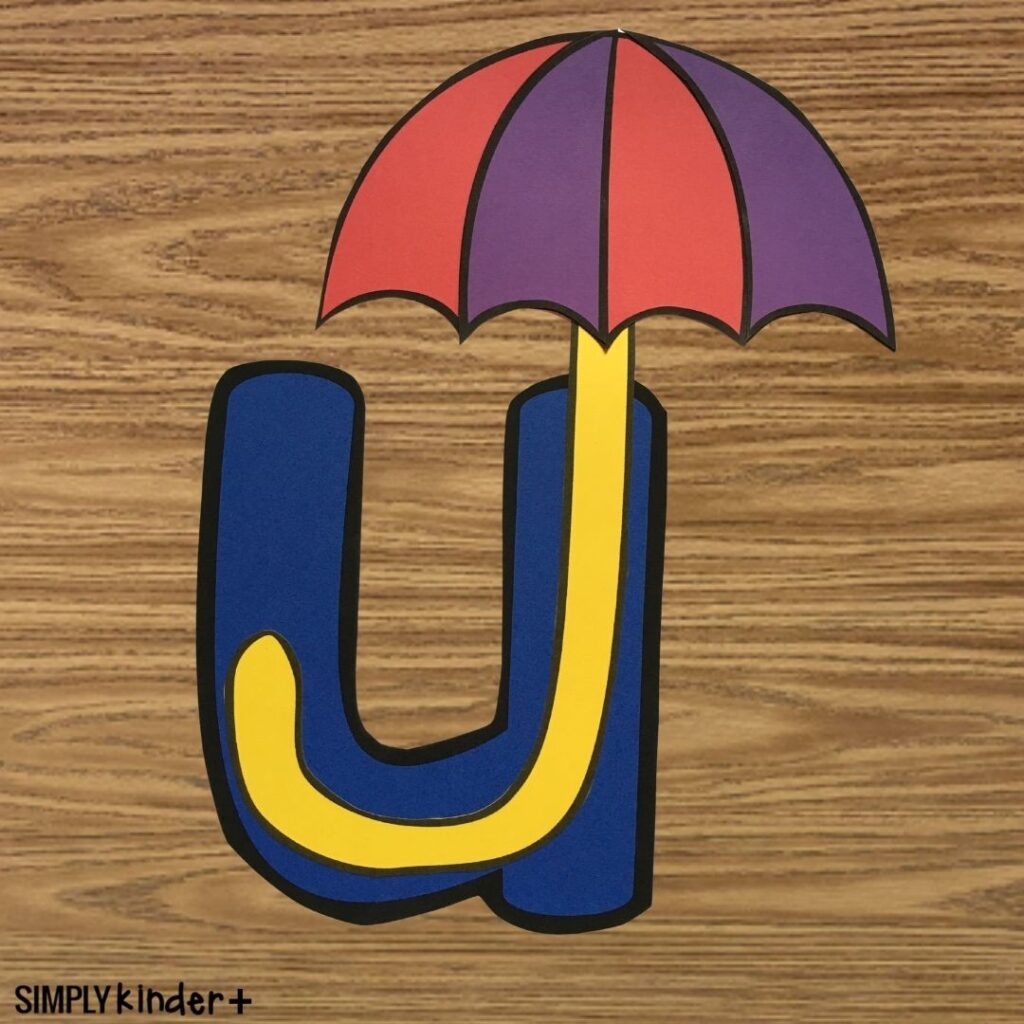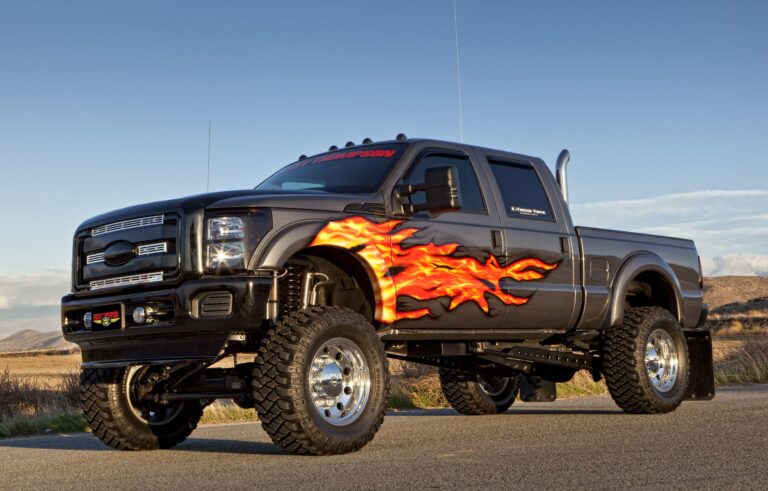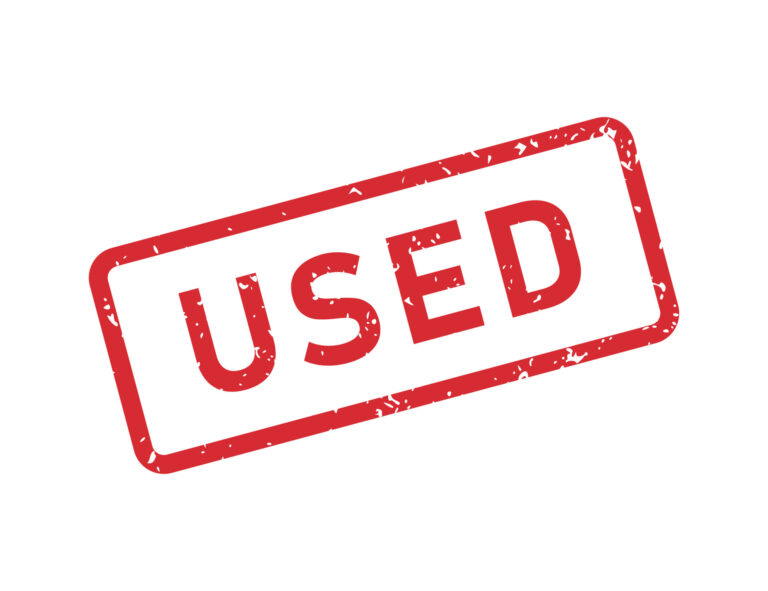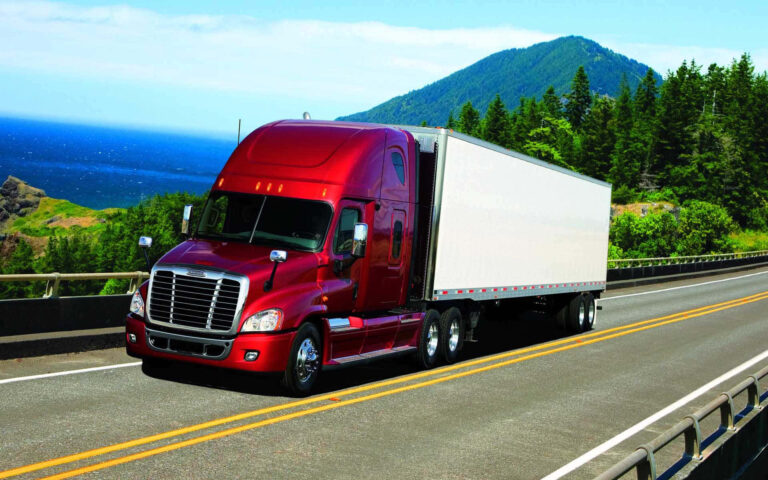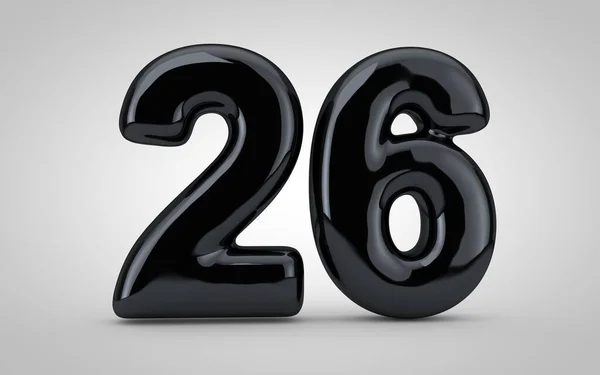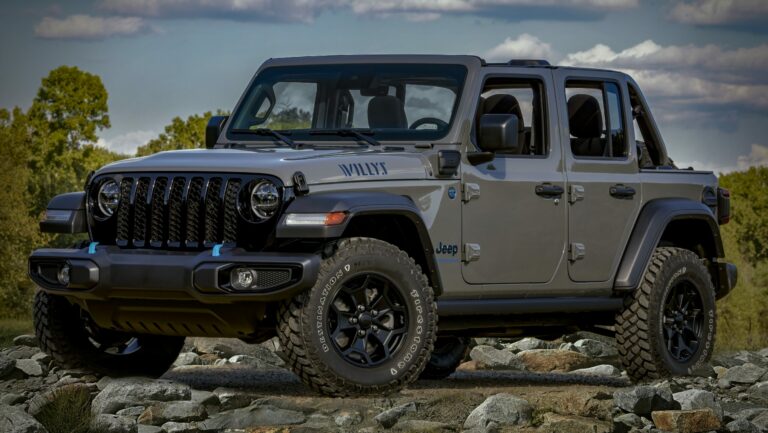U-Haul Trailers For Rent: Your Comprehensive Guide to Moving and Hauling with Confidence
U-Haul Trailers For Rent: Your Comprehensive Guide to Moving and Hauling with Confidence cars.truckstrend.com
Moving, renovating, or simply needing to transport large items can often feel like a monumental task. The sheer logistics of getting your belongings from point A to point B can be daunting, especially if you lack the appropriate vehicle or equipment. This is where U-Haul trailers for rent step in as an indispensable solution, offering flexibility, affordability, and the right tools for almost any hauling job.
U-Haul, a household name synonymous with DIY moving, has built its reputation on empowering individuals to take control of their transportation needs. Their extensive fleet of rental trailers provides a versatile and accessible option for everything from relocating an entire household to hauling landscaping materials or even transporting a vehicle. This comprehensive guide will delve into every aspect of U-Haul trailers, from understanding the different types available to practical tips for a safe and successful rental experience.
U-Haul Trailers For Rent: Your Comprehensive Guide to Moving and Hauling with Confidence
Why Choose U-Haul Trailers? The Benefits of DIY Hauling
Opting for a U-Haul trailer offers a compelling alternative to professional movers or purchasing a dedicated hauling vehicle. Here are some key benefits:
- Cost-Effectiveness: Renting a trailer is significantly more affordable than hiring a moving company or buying a truck and trailer combination. You pay only for the time and distance you need it.
- Flexibility and Control: You dictate the schedule, the route, and the packing process. This level of control is invaluable for those who prefer a hands-on approach or have specific timing requirements.
- Wide Availability: With thousands of locations across North America, U-Haul trailers are readily accessible, often allowing for convenient pick-up and drop-off points near your origin and destination.
- Variety of Options: U-Haul boasts a diverse range of trailers, ensuring there’s a perfect fit for almost any hauling task, from small personal items to large vehicles.
- Reliability and Maintenance: U-Haul trailers are regularly inspected and maintained to ensure safety and reliability, giving you peace of mind on the road.
- Environmental Friendliness: By using your existing vehicle to tow a trailer, you’re potentially reducing the carbon footprint compared to driving a separate, larger moving truck, especially for lighter loads.

Types of U-Haul Trailers Available for Rent
U-Haul categorizes its trailers primarily into three main types, each designed for specific hauling needs:
1. Cargo Trailers (Enclosed Trailers)
![]()
These trailers are fully enclosed, providing protection for your belongings from weather, dust, and debris. They are ideal for moving household goods, furniture, electronics, and anything that needs to be kept secure and dry.
- Sizes:
- 4’x8′ Cargo Trailer: Perfect for small moves, studio apartments, or hauling extra luggage.
- 5’x8′ Cargo Trailer: A popular choice for one-bedroom apartments, dorm rooms, or larger items like refrigerators.
- 5’x10′ Cargo Trailer: Suitable for one-to-two-bedroom apartments, offering more space for furniture.
- 6’x12′ Cargo Trailer: The largest enclosed option, ideal for two-to-three-bedroom homes, large furniture, and significant amounts of boxes.

- Features: Most cargo trailers feature low-loading decks for easier access, sturdy tie-downs inside to secure your load, and some larger models may include a ramp for rolling items in.
2. Utility Trailers (Open Trailers)
Utility trailers are open-top and are designed for hauling bulkier, irregularly shaped, or outdoor items that don’t require protection from the elements. They are excellent for landscaping projects, construction debris, ATVs, motorcycles, and large appliances.
- Sizes:
- 4’x7′ Utility Trailer: Great for small loads of debris, light landscaping, or small equipment.
- 5’x8′ Utility Trailer: Versatile for home improvement projects, hauling dirt, mulch, or smaller recreational vehicles.
- 5’x9′ Utility Trailer with Ramp: Offers added convenience with a full-width loading ramp, perfect for motorcycles, ATVs, or heavy equipment.
- 6’x12′ Utility Trailer with Ramp: The largest utility option, capable of handling significant loads of landscaping materials, large ATVs, or even a small vehicle if properly secured.
- Features: All utility trailers come with a low deck height for easy loading and often include a ramp, making it simple to load wheeled items. They also have integrated tie-down points.
3. Car Trailers (Vehicle Transports)
For those needing to move a car, U-Haul offers two specialized trailer types:
- Auto Transport: This is a full trailer where all four wheels of your vehicle rest on the trailer bed. It’s suitable for long distances, all-wheel-drive vehicles, classic cars, or when you prefer not to add mileage to your towed vehicle.
- Features: Heavy-duty ramps, secure tie-downs for all four wheels, and often surge brakes for added stopping power.
- Tow Dolly: This option lifts only the front wheels of your vehicle off the ground, with the rear wheels remaining on the road. It’s generally used for front-wheel-drive vehicles over shorter distances.
- Features: Easy-to-use ramps, wheel straps, and a swivel pan to allow for sharp turns. Less equipment to tow than a full auto transport.
How to Rent a U-Haul Trailer: A Step-by-Step Guide
Renting a U-Haul trailer is a straightforward process, but preparation is key to a smooth experience.
-
Assess Your Needs:
- What are you moving? List all items to determine the required trailer size and type (enclosed vs. open).
- What is your towing vehicle? Crucially, determine your vehicle’s towing capacity, hitch type, and wiring. U-Haul’s website has a helpful "Towing Capacity Guide" and "Hitch Central" to assist.
- Distance and Duration: Are you moving across town or across the country? This affects pricing and availability.
-
Make a Reservation:
- Online: The U-Haul website is the easiest way to browse options, get quotes, and reserve your trailer.
- Phone: Call 1-800-GO-UHAUL to speak with a representative.
- In-Person: Visit a local U-Haul center.
- Tip: Reserve well in advance, especially during peak moving seasons (end of month, summer, holidays) to ensure availability of your preferred trailer.
-
Pickup Process:
- Bring Required Documents: Valid driver’s license, credit card for payment, and sometimes proof of insurance (though U-Haul offers optional coverage).
- Vehicle Inspection: A U-Haul representative will inspect your towing vehicle to ensure it meets safety requirements for the trailer you’re renting. This includes checking the hitch, ball, and lighting connections.
- Hooking Up: The staff will assist you in properly hitching the trailer to your vehicle, connecting safety chains, and testing the lights. Pay attention during this process so you can confidently re-hitch if needed.
- Rental Agreement & Insurance: Review the rental agreement carefully. Consider U-Haul’s optional SafeTow or SafeMove insurance plans, as your personal auto insurance may not fully cover rental trailers.
-
On the Road:
- Load Securely: Distribute weight evenly, placing heavier items over the trailer’s axle. Secure everything tightly with ropes, straps, or moving blankets.
- Drive Safely: Adjust your driving habits. Allow for longer braking distances, wider turns, and reduce your speed, especially on curves or in windy conditions.
-
Return Process:
- Timely Return: Return the trailer to the agreed-upon location by the specified time to avoid late fees.
- Inspection: A U-Haul representative will inspect the trailer for damage.
Important Considerations Before Renting
Successful and safe towing requires careful preparation and understanding of a few key factors:
Towing Vehicle Compatibility
This is the most critical aspect. Your vehicle must be equipped and capable of safely towing the trailer.
- Hitch System: You’ll need a properly installed trailer hitch receiver. U-Haul offers hitch installation services if your vehicle isn’t equipped.
- Hitch Ball: The ball size must match the trailer’s coupler (usually 1-7/8", 2", or 2-5/16"). U-Haul will provide the correct ball if you rent one of their hitches.
- Wiring Harness: A working 4-pin or 7-pin electrical connector is required for trailer lights (turn signals, brake lights, tail lights).
- Towing Capacity: Check your vehicle’s owner’s manual for its maximum towing capacity. This includes the weight of the trailer itself plus its contents. Never exceed this limit.
- Gross Vehicle Weight Rating (GVWR) & Gross Combined Weight Rating (GCWR): Understand these ratings for your vehicle to ensure the combined weight of your vehicle, trailer, and all cargo is within safe limits.
- Brake Controller: For larger trailers (especially auto transports), a brake controller might be necessary to operate the trailer’s electric brakes. U-Haul may require this for certain rentals.
Safety Tips for Towing
- Pre-Trip Inspection: Before every drive, check tire pressure on both your vehicle and the trailer, ensure lights are working, and confirm the hitch connection and safety chains are secure.
- Weight Distribution: Load the trailer so that 60% of the cargo weight is in the front half of the trailer, closer to the hitch. This prevents "sway."
- Secure Your Load: Use tie-downs, ropes, and moving pads to prevent items from shifting during transit. Shifting loads are dangerous.
- Driving Habits:
- Speed: Drive slower than usual, especially on highways or in adverse weather.
- Braking: Allow significantly more distance for braking.
- Turns: Make wider turns to avoid hitting curbs or objects with the trailer.
- Lane Changes: Signal well in advance and check mirrors thoroughly.
- Backing Up: Practice in an empty lot. Remember, the trailer will move in the opposite direction of your steering wheel initially.
- Regular Checks: During long trips, pull over periodically to re-check tire pressure, the hitch connection, and load security.
Insurance Options
While your personal auto insurance might offer some coverage, it’s crucial to verify. U-Haul offers supplementary coverage options:
- SafeTow®: Specifically designed for trailer rentals, offering damage protection for the trailer itself and potentially coverage for your belongings and third-party liability.
- SafeMove®: For truck rentals, but some components may extend to trailer contents.
It’s always recommended to review your personal policy and consider U-Haul’s options for peace of mind.
Pricing Factors
U-Haul trailer rental costs vary based on several factors:
- Trailer Type and Size: Larger and specialized trailers (like auto transports) are generally more expensive.
- Rental Duration: Most rentals are daily, but longer durations might offer slight discounts.
- One-Way vs. In-Town: One-way rentals, where you pick up in one city and drop off in another, are typically more expensive than in-town rentals due to logistical balancing.
- Location and Demand: Prices can fluctuate based on local demand and availability.
- Additional Equipment: Hitches, wiring harnesses, or moving supplies are extra costs.
Estimated U-Haul Trailer Price Ranges (Daily In-Town Rental)
Please note: These are estimated daily in-town rental prices and are subject to significant variation based on location, demand, time of year, and one-way vs. in-town differences. Always obtain a direct quote from U-Haul for accurate pricing.
| Trailer Type | Sizes Available (Approx.) | Estimated Daily In-Town Price Range | Primary Use | Notes |
|---|---|---|---|---|
| Cargo Trailers | Enclosed, protects contents from weather & theft | |||
| Small | 4’x8′ | $14.95 – $29.95 | Small moves, boxes, light furniture, luggage | Lightweight, easy to tow |
| Medium | 5’x8′ | $19.95 – $34.95 | 1-bedroom apt, dorms, appliances | Popular size, good balance of capacity and towability |
| Medium-Large | 5’x10′ | $24.95 – $39.95 | 1-2 bedroom apt, larger furniture | Offers more length for longer items |
| Large | 6’x12′ | $29.95 – $49.95 | 2-3 bedroom home, large items, bulk boxes | Largest enclosed, requires capable towing vehicle |
| Utility Trailers | Open-top, great for bulky, outdoor, or dirty items | |||
| Small | 4’x7′ | $14.95 – $29.95 | Yard waste, small equipment, light hauling | No ramp usually, very maneuverable |
| Medium | 5’x8′ | $19.95 – $34.95 | Landscaping, ATVs, home renovation debris | Often has low sides for easy loading |
| Medium w/ Ramp | 5’x9′ | $24.95 – $39.95 | Motorcycles, ATVs, heavy equipment, dirt bikes | Integrated ramp for wheeled items |
| Large w/ Ramp | 6’x12′ | $29.95 – $49.95 | Large landscaping, multiple ATVs, construction | Heavy-duty, requires capable towing vehicle, often includes ramp |
| Car Trailers | Specialized for vehicle transport | |||
| Tow Dolly | N/A (fits most cars) | $39.95 – $59.95 | Front-wheel drive vehicles, shorter distances | Lifts front wheels, rear wheels on ground, lighter to tow |
| Auto Transport | N/A (fits most cars) | $49.95 – $79.95 | All-wheel drive, classic cars, long distances | All four wheels on trailer, heavier, may require brake controller |
Tips for a Smooth U-Haul Trailer Experience
- Book Early: Especially during peak moving seasons or holidays.
- Measure Everything: Don’t guess! Measure your items and doorways to ensure they’ll fit in the trailer.
- Know Your Vehicle: Understand your vehicle’s towing capacity and ensure it’s in good mechanical condition.
- Pack Smart: Distribute weight, secure items, and pack essentials for easy access.
- Practice Backing Up: If you’re new to towing, find an empty parking lot and practice turning and backing up.
- Communicate: If you anticipate being late for pickup or drop-off, or encounter any issues, call U-Haul immediately.
- Inspect Thoroughly: Before leaving the lot, inspect the trailer for any existing damage and ensure all lights are working.
Potential Challenges and Solutions
While U-Haul trailers offer immense convenience, a few challenges can arise:
- Challenge: Trailer Not Available When Needed.
- Solution: Book well in advance, be flexible with your pickup time/location if possible, and consider renting a slightly larger or smaller size if your ideal is unavailable.
- Challenge: My Vehicle Isn’t Equipped for Towing.
- Solution: U-Haul offers hitch installation services, wiring kits, and ball mounts. Factor this cost and time into your plan. Alternatively, consider renting a U-Haul moving truck which comes with a built-in ramp and no towing requirements.
- Challenge: Difficulty Loading Heavy Items.
- Solution: Use the trailer’s ramp if available. Invest in a furniture dolly or appliance dolly. Recruit friends or family to help with heavy lifting.
- Challenge: Unfamiliarity with Towing.
- Solution: Start with a smaller trailer. Watch U-Haul’s instructional videos or online tutorials. Practice in a safe, open area. Take turns slowly and allow extra braking distance.
Frequently Asked Questions (FAQ)
Q: Can I rent a U-Haul trailer one-way?
A: Yes, U-Haul offers one-way rentals for most trailers, allowing you to pick up in one city and drop off in another. These rentals are typically more expensive than in-town rentals.
Q: Do I need a special driver’s license to tow a U-Haul trailer?
A: In most states and provinces, a standard driver’s license is sufficient for towing U-Haul trailers as long as your vehicle’s combined weight with the trailer does not exceed specific limits (which are generally high enough for typical personal use). Always check your local Department of Motor Vehicles (DMV) regulations.
Q: What kind of hitch do I need for a U-Haul trailer?
A: You’ll need a properly installed hitch receiver on your vehicle with the correct size hitch ball (U-Haul trailers typically use 1-7/8", 2", or 2-5/16" balls, with 2" being most common). A working lighting connection (4-pin or 7-pin) is also required.
Q: Does U-Haul provide hitches or wiring?
A: Yes, U-Haul offers hitch installation services and sells wiring harnesses, hitch balls, and other towing accessories at their centers.
Q: What if my vehicle doesn’t have enough towing capacity?
A: U-Haul will not rent you a trailer if your vehicle does not meet the minimum towing requirements for safety reasons. You may need to rent a smaller trailer, use a different vehicle, or consider a U-Haul moving truck instead.
Q: Is insurance included with the trailer rental?
A: Basic liability coverage might be included, but comprehensive coverage for damage to the trailer, your belongings, or third-party property is usually an optional add-on (e.g., SafeTow®). It’s highly recommended to consider these options and verify your personal auto insurance coverage.
Q: How do I calculate the right trailer size for my move?
A: Estimate the cubic feet of your belongings or use U-Haul’s online space estimator tools. When in doubt, it’s often better to go slightly larger than too small, as under-packing is safer than over-packing.
Q: Can I pick up or drop off a U-Haul trailer after hours?
A: Some U-Haul locations offer after-hours pick-up/drop-off options, but this varies by location and requires pre-arrangement. Always confirm with the specific rental location.
Conclusion
U-Haul trailers for rent stand as a cornerstone of the DIY moving and hauling industry, offering an accessible, flexible, and cost-effective solution for a myriad of transportation needs. From compact cargo trailers for small apartments to robust auto transports for cross-country vehicle moves, U-Haul’s diverse fleet empowers individuals to take control of their logistics.
By understanding the different trailer types, preparing your towing vehicle, prioritizing safety, and utilizing the practical advice outlined in this guide, you can ensure a smooth and successful rental experience. With proper planning and adherence to safety guidelines, U-Haul trailers transform daunting hauling tasks into manageable, empowering endeavors, giving you the freedom to move forward, one load at a time.
